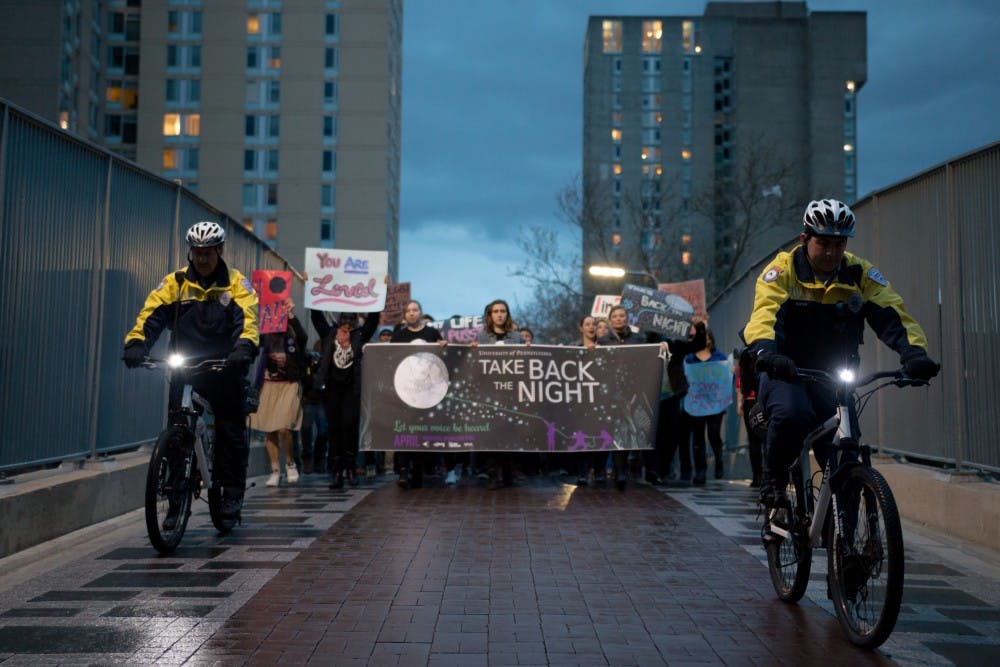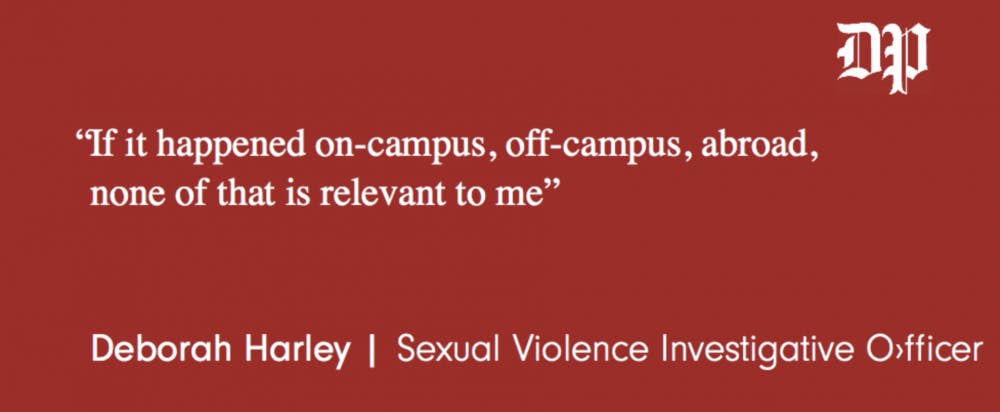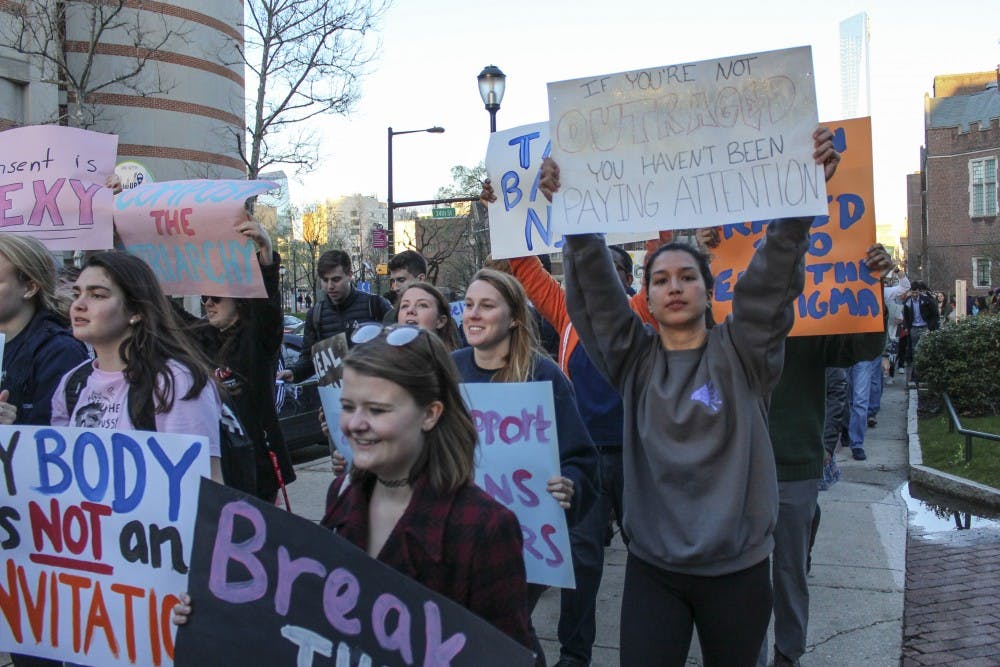
Under the Obama administration, the “Dear Colleague” letter of April 2011 set guidelines for how universities were required to handle sexual misconduct on campus. What Penn students might not know is that many of these requirements apply even when students face sexual misconduct off-campus.
Deborah Harley, Penn’s sexual violence investigative officer, said she investigates all complaints made against enrolled Penn students and faculty involving sexual violence, relationship violence and stalking. She said that regardless of where the incident takes place, all complaints are handled using the same procedure.
“If it happened on campus, off campus, abroad, none of that is relevant to me,” Harley said. “The complainant does not need to be a Penn student. It can be a visitor. It can be someone from a different university. It can be a staff or faculty member."

Harley's office uses the word "complainant" to describe a person who reported the incident of sexual harassment or violence and "respondent" to identify the person against whom the complaint was made.
Title IX, which protects against sex-based discrimination in schools, requires all schools to “process all complaints of sexual violence, regardless of where the conduct occurred to determine whether the conduct occurred in the context of an education program or activity or had continuing effects on campus or in an off-campus education program or activity,” according to the Department of Education’s website.
If an incident of violence occurs during a school-sponsored education program or activity that is held off campus, such as “activities that take place at houses of fraternities or sororities recognized by the school; school-sponsored field trips, including athletic team travel; and events for school clubs that occur off campus,” then the school is required to treat the situation as it would an on-campus assault.
If the incident of violence did not happen during a school-sponsored activity or program, the school is not required to treat it like it happened on campus, but is required to investigate the effects of the incident on the student while they continue to stay on campus.
For example, if one Penn student is sexually assaulted by another Penn student in New York City, Penn should investigate if the presence of the perpetrator on campus poses a threat to other students, or to the victim of the assault. The DOE's website explains that “the mere presence […] of the alleged perpetrator of off-campus sexual violence can have continuing effects that create a hostile environment.”

Harley also said that Student Intervention Services, in accordance with DOE guidelines, can help students avoid hostile environments after misconduct occurs, regardless of whether the student files a formal complaint with the University.
Harley explained that SIS can help relocate students in cases where the complainant and respondent live in close proximity, rearrange classes if the complainant and respondent are taking the same classes and issue “no-contact directives.” For example, Harley said, SIS could tell the complainant to only visit the gym between 8 a.m. and 12 p.m. so that the respondent could feel safe to go between 1 p.m. and 5 p.m.
Drexel University has the same policy, stating in its Sexual and Gender-Based Harassment and Misconduct Policy that “all students and employees of the University are responsible for their actions and behavior, whether the conduct in question occurs on campus, in the surrounding community or in another location."
The university adds that "this policy applies to all relevant conduct wherever it occurs, including on campus, off campus and online.”
Executive Director of the Women’s Law Project in Philadelphia and former Director of Penn’s Women’s Center Carol Tracy said a university has a “duty to make accommodations” for students regardless of if the event happened on-campus or at a university sponsored event.
She added that schools have a “considerable amount of discretion” in their implementation of Title IX policies, but “cannot go below the floor of what is considered a protection against sexual harassment.”
“They can be stricter, but they can’t be less strict,” Tracy said.
Many students don't seem to be aware of Penn's policies when it comes to sexual assault that occurs beyond university premises, said Chair of Abuse and Sexual Assault Prevention and College senior Caroline Ohlson.
In an emailed statement, Ohlson wrote that she thinks many students aren’t aware of this policy and don’t realize that this applies even outside of Philadelphia. She also wrote that she thinks a lot of students aren’t aware of the resources that are available to them or where to find these resources.
She added students can help to play a role in increasing the awareness of and destigmatizing the use of Penn’s sexual assault resources by referring friends who have experienced sexual assault to these resources.
“I wish that more students were aware of these resources and that if they seek out a confidential resource, they can get support and learn more about their options before making any decisions about reporting,” Ohlson wrote.
The Daily Pennsylvanian is an independent, student-run newspaper. Please consider making a donation to support the coverage that shapes the University. Your generosity ensures a future of strong journalism at Penn.
Donate




